The new organic top fruit season has started at BelOrta. At Bert Toetenel's farm in Diest, an insight was given into what the new season looks like and the importance of organic for the cooperative. "I think that, especially after a tough last year, we can be extremely satisfied with what the new organic apple and pear harvest looks like," explained Gunther De Vadder, organic manager at BelOrta.
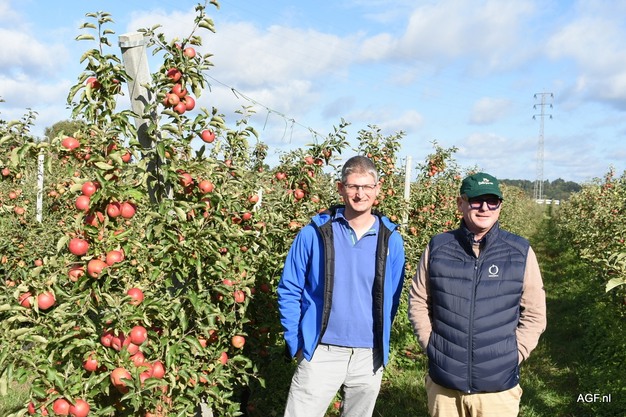 © Jannick Flach | FreshPlaza.com
© Jannick Flach | FreshPlaza.com
Grower Bert Toetenel and Gunther De Vadder of BelOrta
"The cosmetic quality is very good," he continues. "We mostly talk about cosmetic quality because an apple or pear with a spot still tastes just as good. Only then is it less likely to be picked up. Especially in organic, this is not always easy, but this year we have no complaints about that. Besides, the yield is also much better than last year. That was an extremely difficult season, but we won't experience those problems this year. The yield is not the highest ever, but it is good enough to get us through the season."
Gunther, and also his 22 organic top fruit growers, including Bert, do not fear that they will be unable to sell their fruit on time. "For us, the most important thing remains that production stays stable and that supermarkets can rely on a consistent supply. In pears, for example, we have a good sales window until week 10 of the new year, when the overseas organic pears usually arrive on the market. Until then, they will be sold in Belgium as well as in several neighbouring European countries. Supermarkets will remain loyal to us until we run out, and overseas supply takes over. The apples are mainly destined for the domestic market, where, with successive varieties, we can market them nicely until June."
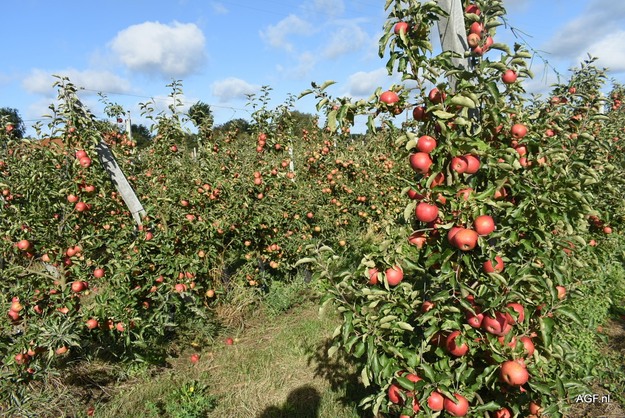 © Jannick Flach | FreshPlaza.com
© Jannick Flach | FreshPlaza.com
Cooperative model good for organic
Here, Gunther and Bert see great advantages in the cooperative model. "For apples and pears, organic growers aim for stable production, rather than peak years with overproduction. Too much supply in one season cannot be marketed optimally. The cooperative sales structure helps build stable relationships with supermarkets and reduces the risk of overproduction. They take a little more when there is oversupply, but we always think of our loyal customers first when there is less available. Building those relationships is extremely important."
"The same applies when finding new export markets. We are not actively seeking these with organic, but they will come naturally. At BelOrta, new markets regularly emerge for conventional trade. As a cooperative, we can also efficiently co-sell organic products where requested. After all, it is extremely labour-intensive and costly to introduce a product to a market only in the organic sector. This way, however, we can work as a kind of 'one-stop shop' for our partners. If you want an organic pear alongside a conventional strawberry, we can ship it without high additional costs."
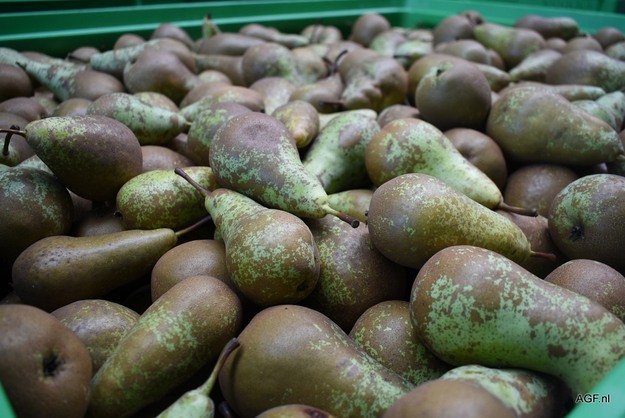 © Jannick Flach | FreshPlaza.com
© Jannick Flach | FreshPlaza.com
Variety in varieties
In organic top fruit growing, there has been a lot of talk recently about switching to more resistant varieties. "Important," Gunther assures. "But we should not make it the only focus. After all, no variety is perfect. With diseases like scab, for example, you see that resistance does not last forever: the disease adapts. Monoculture makes crops very vulnerable. Moreover, new varieties require years of experience before growers know how to work with them. That is why variety is essential. We see this here on Bert's farm, which has planted a wide range of varieties. He also does trials with new varieties. This spreads the risks and also brings benefits in harvest timing. Indeed, you see that in a year like this, it is difficult to get the crop off the trees on time."
This is partly due to the growing problem of labour. "Both organic and conventional growers face shortages of seasonal workers. Many come from Poland, Romania, or sometimes Ukraine. Some return annually, but others do not. This makes it difficult to retain experienced people and to get the harvest in on time."
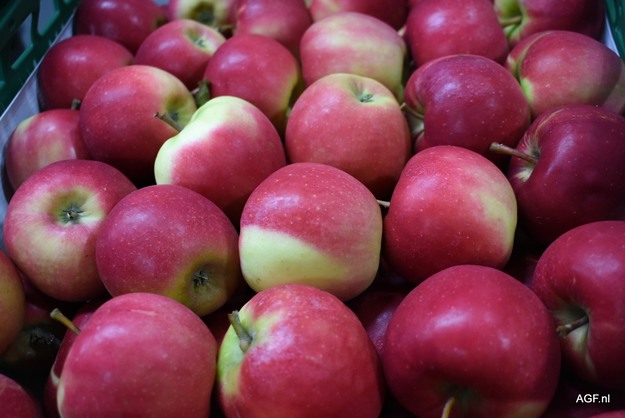 © Jannick Flach | FreshPlaza.com
© Jannick Flach | FreshPlaza.com
Offering entire product groups organically
Nevertheless, the pair sees a bright future for the organic sector. However, they point out that challenges remain. "We are always looking for growers willing to switch. Especially in greenhouse vegetable production, where the requirements from supermarkets are also becoming stricter for conventional products. Tomatoes, strawberries, and many other crops grow on substrate (glass or coconut fibre) and not in soil. Switching to organic is then much more difficult than with apples and pears."
"Whether people will still make the switch will ultimately depend on how strictly Europe and the member states enforce the mandatory organic share. In Belgium, the target is 30% organic by 2030. That won't be achievable for all products, but on average, it will be. In the Netherlands, there are already supermarkets that offer certain product groups only in organic, for example, dairy or bananas. That kind of choice drives up market share all at once. If this continues, certain products could become very interesting for organic."
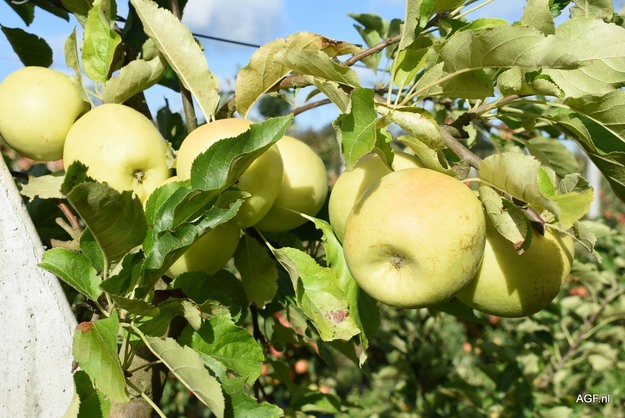 © Jannick Flach | FreshPlaza.com
© Jannick Flach | FreshPlaza.com
For more information:
BelOrta![]()
Mechelsesteenweg 120
B-2860 Sint-Katelijne-Waver, Belgium
Tel: +32 (0)15 55 11 11
[email protected]
www.belorta.be
